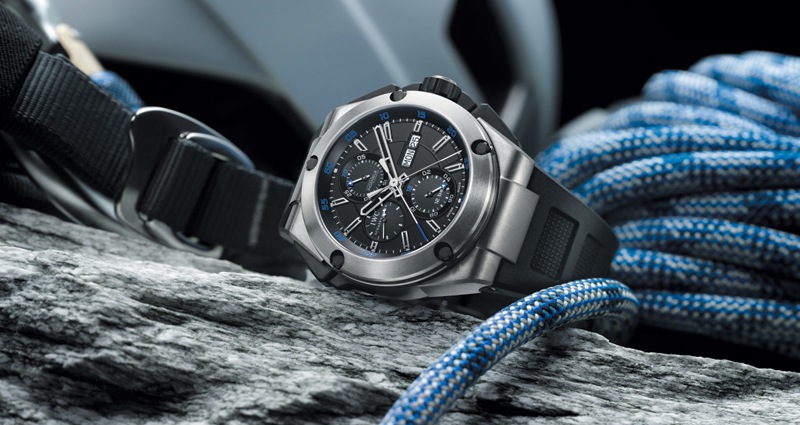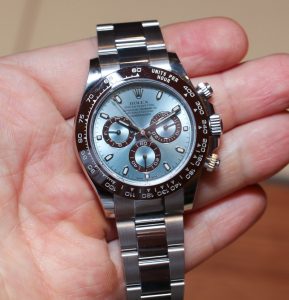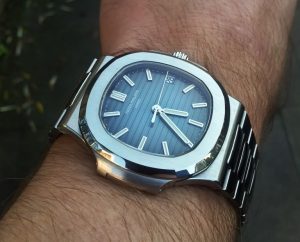
Watches are not only a fashionable accessory, they’re a practical one as well. When you go to buy one, you have many choices in designs, styles, and materials to choose from. These choices can be fantastic, but also a little confusing. Taking each option one step at a time is the best way to avoid getting overwhelmed. For now, we will focus on two very common materials that watches are made of. We will be looking at the pros and cons of titanium vs stainless steel watches, so you can choose which material best suits your needs.
Value & Popularity
Titanium watches are booming in the market right now, especially for higher end watches. This is because they have proven to  be a cheaper option than traditionally used higher end materials such as gold or platinum. However, titanium still has a higher market value than stainless steel, making it slightly more expensive. Stainless steel is also used as a cheaper substitute though, since it is affordable and can imitate the look of platinum for those who don’t have or don’t want to spend the money on a more expensive watch.
be a cheaper option than traditionally used higher end materials such as gold or platinum. However, titanium still has a higher market value than stainless steel, making it slightly more expensive. Stainless steel is also used as a cheaper substitute though, since it is affordable and can imitate the look of platinum for those who don’t have or don’t want to spend the money on a more expensive watch.
Visual Appearance Of Both Materials
We already established that stainless steel is sometimes used as a replacement for titanium to offer a more inexpensive product, but what exactly does that mean? They offer the shiny, silver color of finished steel but unfortunately, only come in the one color. In other words, if you are looking for a watch that you can get in several colors for the sake of being fashionable, stainless steel may not be for you. Titanium, on the other hand, is a much darker, duller metal that is usually given a brushed or high polish finish to make it look a little less dull.
Durability Of Both Metals
Titanium is a very hard metal, but it isn’t exactly what most people would consider durable. It isn’t scratch proof, which is unfortunate for a piece that you would be wearing frequently to be easily marred in this way. Once it’s damaged, it’s also hard to refinish or polish, so if it gets scratched, it’s virtually stuck that way.
Stainless steel, on the other hand, is a sturdy choice but will need some maintenance. It’s more durable than titanium as far as scratches and stains go, but it’s not completely “stainless” for the duration of their life as the name suggests. Unfortunately, stainless steel does rust easier than titanium, so it isn’t recommended for swimmers or anyone who works in a wet environment regularly. However, with regular maintenance a stainless steel watch can last you an exceptionally long time compared to other watches.
Comfort On The Wrist
Stainless steel gives you a heavy wear with all the physical attributes that we have discussed already. Titanium offers a lighter  wear. The weight of your watch, though, is ultimately up to the wearer, since the only thing it effects is how it feels on your wrist. It’s important to note that stainless steel can have traces of nickel in it while titanium doesn’t, so if you have an allergy to nickel, you should probably consider a titanium watch.
wear. The weight of your watch, though, is ultimately up to the wearer, since the only thing it effects is how it feels on your wrist. It’s important to note that stainless steel can have traces of nickel in it while titanium doesn’t, so if you have an allergy to nickel, you should probably consider a titanium watch.
The Verdict
So, we’ve learned all about the pros and cons of these materials but what does it all mean? Well, when it comes down to it, most of your decision comes down to preference over which of the above pros are worth the cons. There are a couple of distinct characteristics that will make the decision definite for you though that you should keep in mind. For one, if you have any sort of nickel allergy, stainless steel is most likely to cause you a reaction, so titanium may be a better bet. Titanium may also be better for swimmers or people who are often near water, since stainless steel will rust much easier. However, features such as the color and weight are pure opinion and are a choice based on your personal preference. With this guide though, you’ll be able to shop for a new watch with an educated view on what’s best for you.
Wow, I did not realize that there were so many differences between titanium and stainless steel when it comes to watches. Although, I suppose that many of those differences come down to the metals themselves not just the watches they’re turned into. I particularly like that the article brings up that titanium can come in different colors making it more fashionable than stainless steel.
Stainless steel will rust … but i had a stainless steel dive watch for over 30 yearss — ( and have dived and been near and in see water regularly in that period) and there is no indication of rust.
As a diver i dive with a diving knife (for situations where i might get stuck eg in a fishermans lost net for example).
The sheath of the knife is stainless steel.
I has rusted after 3-4 years expecially if i didnt use the knife a couple years and it remained in the closet.
And i didnt maintain it (buy polishing and oiling it once in a while).
The difference between the two: It is because the body lets off “oils” and this protects the watch. So it never rusts. Also it is always getting buffed and “polished” just by being on the hand. Which means it never will show rust if worn every day – as this short article/comment i am writing testifies.
HTH
p.
Stainless steel is very general term nowadays. There are cheap stainless steels that contain critically small percentaqe of stainless metals (nickel etc). These are moch more prone to rust than better stainless steels that contain higher % of stainless components. Also the environments can be very different as Paul already mentioned.
Hello,
I am trying to establish the weight of a titanium watch case (only the case itself) versus a stainless steel case. If such information is not available the average weight of the case of standard watch could also help me.
Regards,
Henk Jonkhoff
Hi Henk, sorry I don’t have any specific measurements, and it’s going to depend on each individual watch case model of course. If I ever get any specific examples for you I’ll drop them here. From wearing both stainless steel and Titanium, the Titanium feels significantly lighter on the wrist, but not quite as light as ceramic.